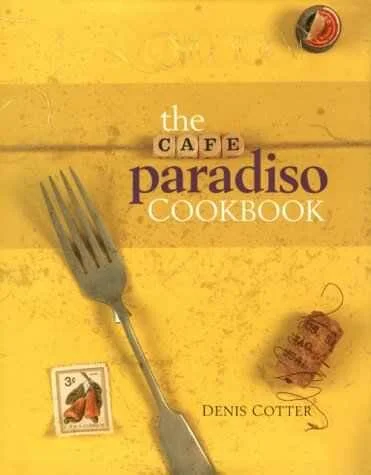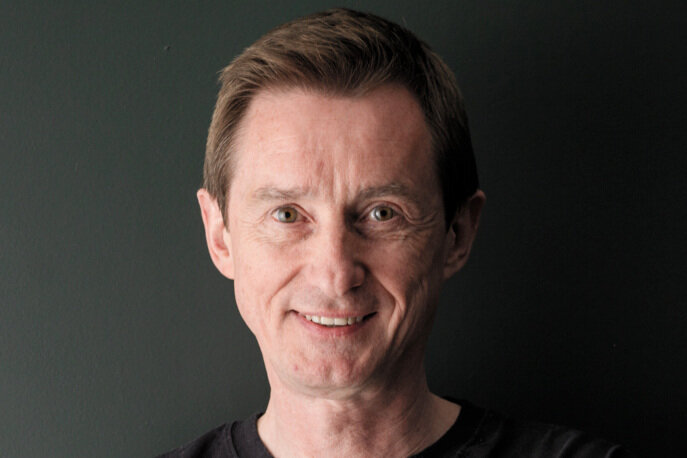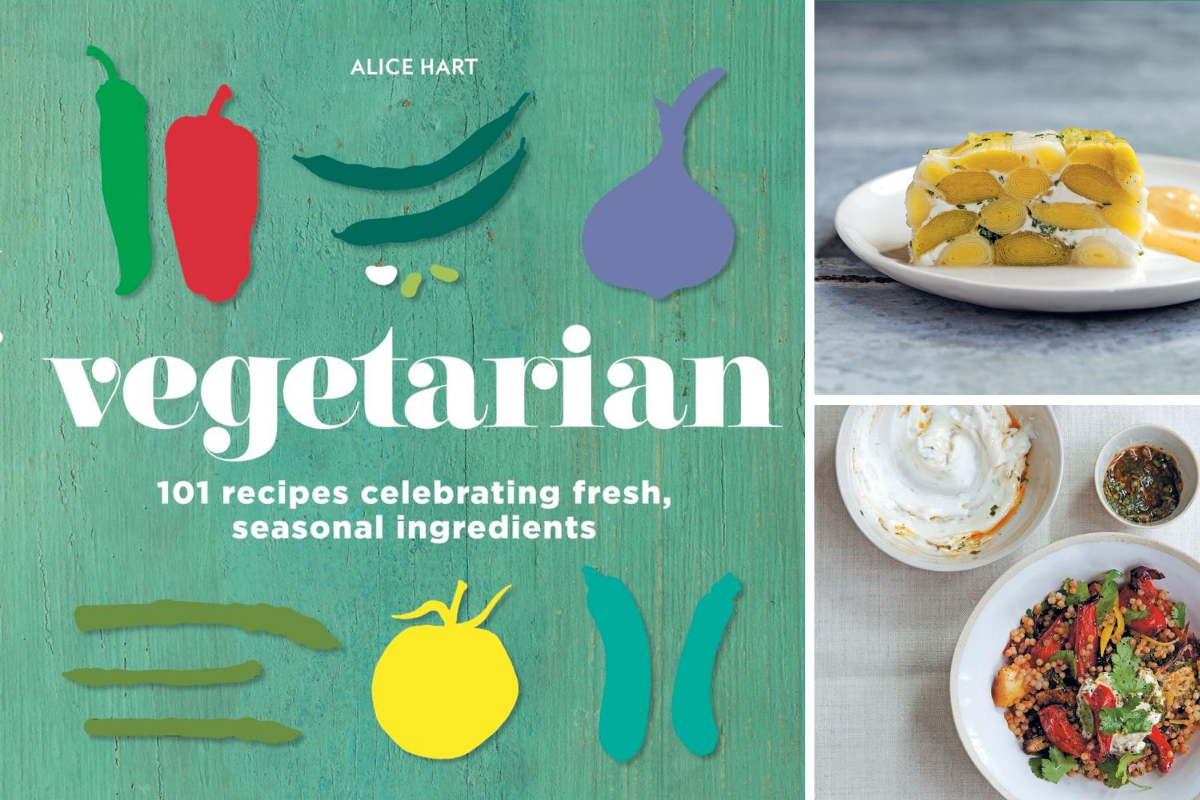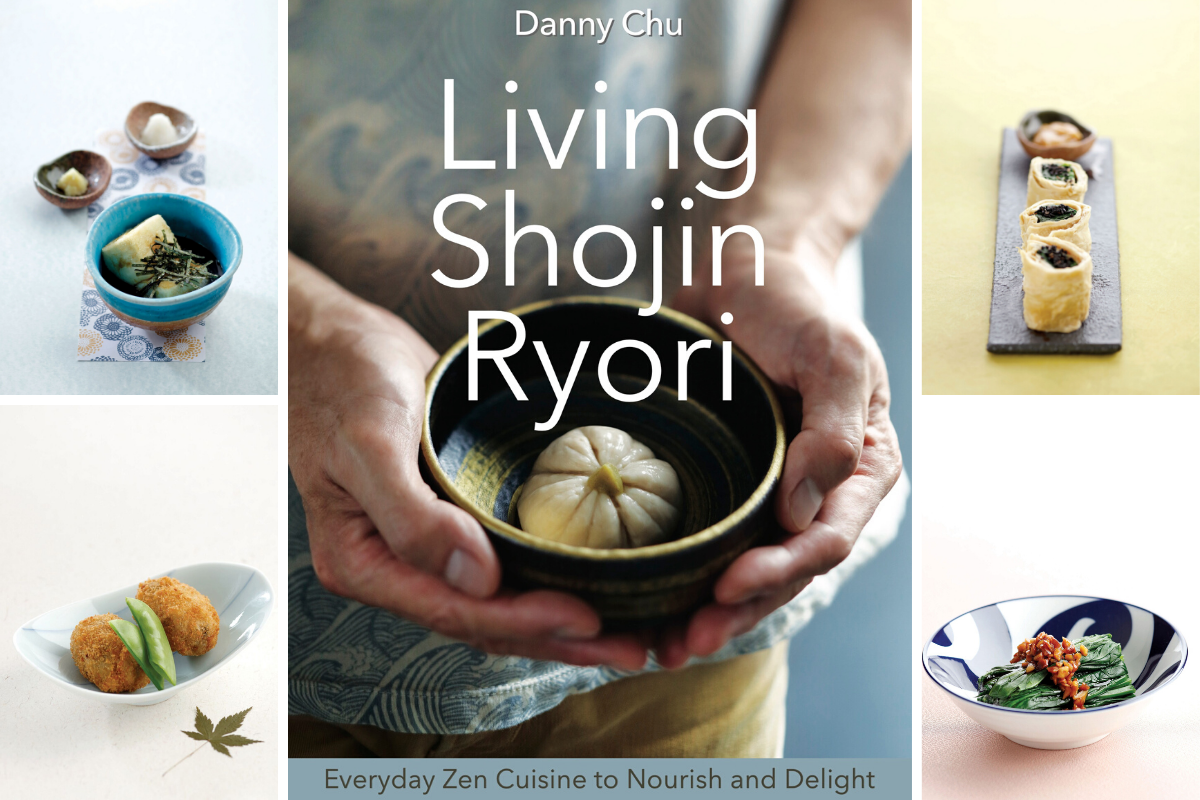Advertisement
Author Profile: Denis Cotter, author of The Café Paradiso Cookbook
23 February 2021 · Author Profile
Chef and restaurateur Denis Cotter opened Café Paradiso in Cork, Ireland, in 1993. After chucking in a banking career aged 25, he worked for a couple of years at Cranks, the pioneering London-based vegetarian restaurant group. Denis then spent time traveling in New Zealand before returning to Ireland and, with no formal chef training, opened Café Paradiso, which set out to challenge preconceptions about vegetarian food.
28 years on, the restaurant (pandemic aside) is still going strong – a huge achievement in such a fickle industry – and it is still winning plaudits for doing things differently. In 2019, Paradiso (as it’s now called) won a World Restaurant Award for ‘Collaboration of the Year’ for its work with the local Gort na Nain farm.
While normal service temporarily suspended due to the pandemic, Denis had time to talk to ckbk about Paradiso’s past, its present – and what the post-pandemic future may hold for restaurants.
Interview: Susan Low
Q: Tell us why you opened the restaurant and what the food is all about.
I wanted to set up my own kitchen where I could cook in a less inhibited way. I was very taken with the new style of restaurant that I encountered in New Zealand – part of the whole casual, fusion style coming out of California – where the atmosphere was relaxed and café-like but the cooking was serious, multicultural and flavor-driven. I wanted to have the freedom to create such a place that was also vegetarian, a place that didn’t cook with meat but that would be accepted as a proper modern restaurant.
The food has evolved a lot over the years, and the restaurant too, but that core principle is always there – vegetable-based food that is focused on flavor and pleasure.
Q: How did you come to write The Café Paradiso Cookbook?
I was convinced to do it by a regular customer, Sara Wilbourne, who was editor of the Cork University Press (CUP) at the time. CUP bought the defunct Attic Press, so the University press could publish commercial work through that. The Café Paradiso Cookbook was the first non-academic book published by CUP.
Most of the writing was done late at night after a long shift in the kitchen, so it was very loose in style. Having no experience of writing or publishing, I expected there to be a hard editing process but Sara took a very light approach and made only small adjustments to the text. We both wanted to create a book that reflected the restaurant. She allowed me to have my friend, John Foley, as the designer/producer and another friend, Eoin Kelly, got to do the cover art.
Q: It’s closed now because of the pandemic, but how has the restaurant evolved over the years?
Well, we dropped the word ‘Café’ from the name a few years ago. The original was open all day – coffee and scones in the morning, cake in the afternoon, lunch with salads and tortillas in the middle, and dinner in the evening. Eventually, we were doing only dinner, and at a moderately high price, so we decided the place needed to have a more grown-up representation. The dining room got a makeover. It is now calm and peaceful where before it was colorful and clattery. The food too has become more mature and sophisticated, though we still make sure that it still has a lot of flavor and intensity.
Paradiso’s food has evolved over the years and, especially in the last five years or so, it has been increasingly influenced by technically gifted younger chefs. There are elements to it that most people couldn’t produce at home. In some ways, this is even more of a tightrope walk, as I often tell the chefs, because if you make something that looks complicated and cheffy, it really has to deliver or the customer will take you for a charlatan – or, worse, they will subconsciously believe that your food is all tricks and has no soul.
Q: Which recipes from the book that you still cook (or cook versions of) now? Which are your favorites?
The Asparagus and Gabriel Cheese Gratin is still one that we pull out every asparagus season, recently with the addition of hazelnuts and deep-fried capers. It grew into a main course for my second book, Paradiso Seasons, with roast tomato and potato added in. The Deep-fried Courgette Flowers still make the menu every summer, again as a main course with different saucing and accompaniments.
The Corn Pancakes with Fennel-Chilli Salsa is a classic combination that always works, usually now with some greens added to the mix. I’m very fond of the Gingered Kale, Walnut and Pumpkin Gratin because I think it was an early piece of pure invention, an almost unrecognizable riff on shepherd’s pie, but it divided customers and wasn’t always easy to get right. The Aubergine Gamelastra for its rich combination (a chef friend ordered when he came for dinner because he said it couldn’t possibly work but then he loved it). Also the story behind its name is great, ‘gamelastra’ being a made-up word.
Q: How have people’s attitudes to meat-free eating have changed since the book was published?
Eating meat-free has become quite mainstream compared to how it was back in the 1990s. Paradiso was always an exception, in that our customer base was always people who liked food, rather than being committed vegetarians.
Over the years, it came to be aligned more with issues such as sustainability and local sourcing than with meat abstinence, and it is only in recent years, as meat consumption has been linked with climate change, that the issue of meat abstinence has come to prominence again. It will be interesting to see if that becomes more than a temporary change. The signs are that it will, as big corporations, including meat and dairy ones, buy into the ‘plant-based’ market.
For me, it is a moral issue. I don’t think we have the right to treat animals as food, certainly not to farm them. The big game-changer here will be our increasing understanding of animals in terms of intelligence and consciousness, and our understanding of ourselves as animals.
Q: What do you think of the term ‘plant-based’?
I don’t mind the term. All titles or categories are clunky. I hated the word ‘vegetarian’ for a long time, and still don’t like it really. I don’t like that my food choices have a name and others don’t, although I see why it is convenient.
A massive difference is that, now, meat and dairy are considered together by people who think morally about food. So if they give up one, they give up both. We gave up meat and took to eating loads of cheese! It made sense for the morals of the time but that approach seems woolly thinking now, and I would definitely be vegan if I was making the move now. I still eat dairy but with some guilt, and I try to not do it too casually.
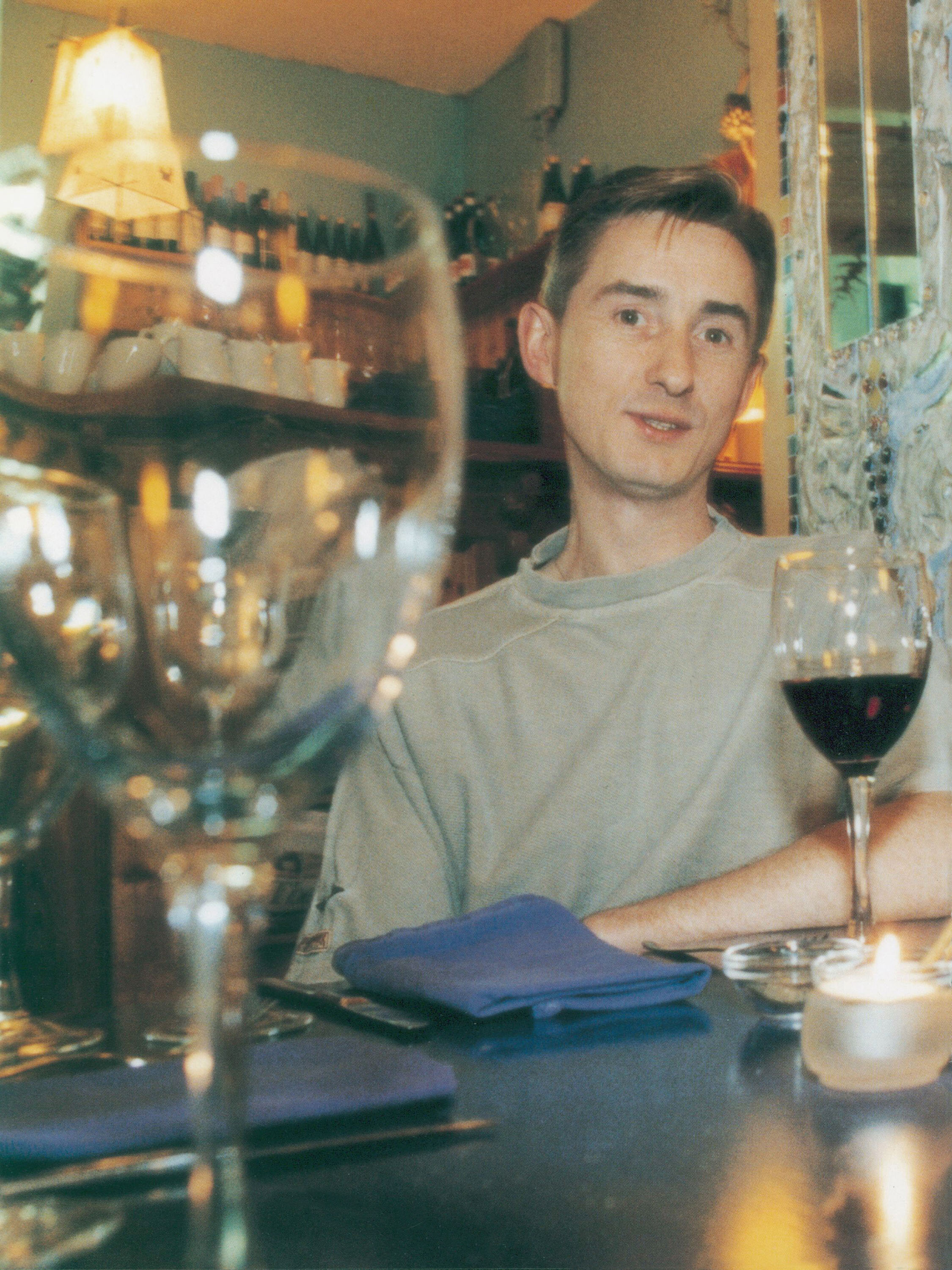
Denis in the early days of Café Paradiso.
Q: The pandemic has made things exceptionally hard for the restaurant business. Looking ahead to post-pandemic times, do you think there will be permanent shifts in how things are done?
Like everything to do with this situation, it is too early to say. I’m trying to resist making snap decisions about how it will be. It was supposed to be over now, for one thing, and here we still are!
During the times we were allowed to open with reduced capacity, we found a model that worked well for us: just one slightly higher-priced menu, fewer seats, more pre-booking, a slightly more intricate menu, and better sales of higher-end wines. The experience for the diner and for us was more enjoyable, so we will look to stick to that model as things relax.
As government support decrease and disappears, we will have to either increase capacity again, or diversify. We enjoyed the learning and adapting involved in setting up our online shop and meal-kit offering at paradisoathome.com, and we will probably try to keep that element of multiple disciplines in the future.
The old model, very common in the restaurant business, is to hit very high targets week-in, week-out, working at a frantic pace and making a tiny margin. I think a lot of people will want to adjust their business model and their work/home life too.
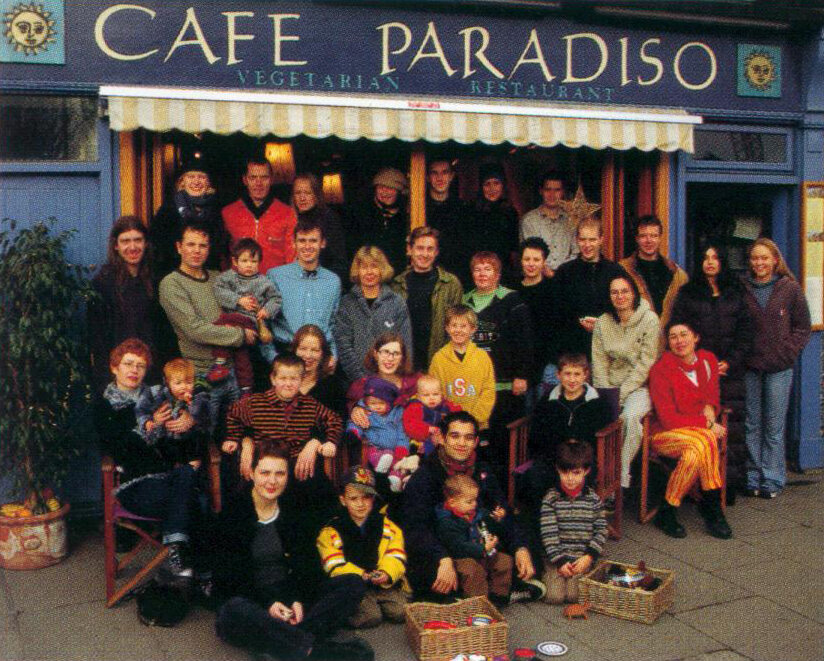
The Café Paradiso team, back in the day…
Q: Some are predicting that the pent-up demand for dining out will lead to a blossoming of the restaurant trade when this is all over. Are you hopeful?
There are people who miss restaurants terribly and want to come back out as soon as they are allowed. But there are plenty too – and as a consumer I am one of these – who think it was all a bit mad before, and they will be more careful about how they spend their money and who with – they will eat out less, but better. I’ve seen restaurateurs say that they think fine dining is dead (again!) and others who think people will want dining experiences they can’t get at home and won’t pay for overpriced casual. Who knows?
My main hope is that people will maintain that increasing awareness of where they spend their time and money, and that support for businesses that give back to the community will be a key issue. Paradiso has very solid customer base and reputation in those areas, and I am confident we will be well placed to survive, and to survive on our own terms doing work we are proud of – which has always been very important to how we go about our business.
Q: Which chefs or food writers have influenced you most and which do you most admire?
Deborah Madison’s The Greens Cookbook was inspirational in how it treated vegetables as exquisite, unique ingredients rather things to be lumped together as ‘veg’. Elizabeth David’s writing style was an influence on how I tried to write my first two books, in trying to combine information, instructions, and stories in a conversational flow.
John Wyer of Forest Avenue restaurant in Dublin is the chef whose food I love most. He has all the technical gifts but he also has the rare gift of communicating something through his food – it goes in as love and comes out as pleasure.
Q: Do you have a large cookbook collection? Which are the titles you wouldn’t live without?
I don’t! I had more cookbooks when I was younger but I’ve left them behind through a series of moves. Honestly, I use my own four books for reference when I can’t remember how to make something!
I do love Amanda Cohen’s Dirt Candy: A Cookbook. The recipes work and the style of using cartoons and drawings isn’t a gimmick; it really helps to communicate how she thinks about food.
Other books about or around that I’ve liked and kept over the years include Anthony Bourdain’s Typhoid Mary: An Urban Historical, Larry Zuckerman’s The Potato: How the Humble Spud Rescued the Western World; John Dickie’s Delizia; and everything by Jeffrey Steingarten.
Try some of Denis’s favorite Paradiso recipes
You can find every recipe from The Café Paradiso Cookbook, in full, on ckbk.
Sign up for ckbk's weekly email newsletter
Related Posts
Advertisement

